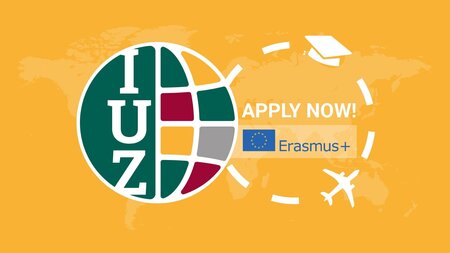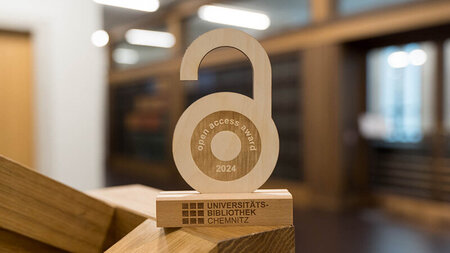Teaching
Information in the central course directory
- All courses of the faculty of mathematics
- Courses of the faculty of mathematics sorted by degree programs
- English-language courses of the faculty of mathematics
- Search in the course directory
Preview
Information for staff and professors
- Current course planning (internal)
- Earlier course planning until 19/20 (internal)
- Evaluations (internal)
- Changes and transfers of courses
- Mathematics
- Financial and Business Mathematics (with Faculty of Economics and Business Administration)
- Mathematics, Computer sciences and Natural sciences with applications in technology
(with Faculty of Natural Sciences)
- Mathematics
- Data Science (with Faculty of Computer Science)
- Finance (with Faculty of Economics and Business Administration)
- Advanced and Computational Mathematics / Course content
Expiring degree programs
Bachelor of Science (B.Sc.) / Master of Science (M.Sc.) in fields of study- Mathematics
- Mathematics with Computer Science
- Industrial Mathematics
- Financial Mathematics
- Business Mathematics
- Financial Mathematics (with Faculty of Economics and Business Administration)
- Business Mathematics (with Faculty of Economics and Business Administration)
- Resit exams
- Charge of modules of the new studies in Data Science in the combined Ba/Ma studies in Mathematics
- Charge of the modul "Computerorientierte Mathematik" for the combined Ba/Ma studies in Mathematics
- Exam registration [de]
- Notes on the examination process[de]
- Applications for students
- Protocols for auditors[de]
- Responsible clerk: Claudia Pfeiffer
Academic advisor

-
Phone:+49 371 531-31084
-
Email:
-
Address:Reichenhainer Straße 41, 09126 Chemnitz
-
Room:C47.725 (prev. 2/41/725)
-
WWW:
Here you will find an overview of all modules of the Faculty of Mathematics, sorted by degree program.
Note: The links refer to the modules in the current version of the study documents.
- Algebra (nur intern: Details)
- Analysis I (nur intern: Details)
- Analysis II (nur intern: Details)
- Bachelor-Arbeit (nur intern: Details)
- Computerpraktikum (nur intern: Details)
- Einführung in die diskrete Mathematik (nur intern: Details)
- Funktionentheorie (nur intern: Details)
- Grundlagen der Optimierung (nur intern: Details)
- Lineare Algebra I (nur intern: Details)
- Lineare Algebra II (nur intern: Details)
- Mathematische Statistik (nur intern: Details)
- Mathematisches Programmieren (nur intern: Details)
- Maß- und Integrationstheorie (nur intern: Details)
- Numerische Mathematik (nur intern: Details)
- Proseminar (nur intern: Details)
- Spezialisierung zur Mathematik (nur intern: Details)
- Vektoranalysis und Gewöhnliche Differentialgleichungen (nur intern: Details)
- Wahrscheinlichkeitstheorie (nur intern: Details)
- Analysis I (nur intern: Details)
- Analysis II (nur intern: Details)
- Angewandte Statistik (nur intern: Details)
- Bachelor-Arbeit (nur intern: Details)
- Computerpraktikum (nur intern: Details)
- Grundlagen der Optimierung (nur intern: Details)
- Lineare Algebra I (nur intern: Details)
- Lineare Algebra II (nur intern: Details)
- Mathematische Modelle in den Wirtschaftswissenschaften (nur intern: Details)
- Mathematische Statistik (nur intern: Details)
- Mathematisches Programmieren (nur intern: Details)
- Maß- und Integrationstheorie (nur intern: Details)
- Numerische Mathematik (nur intern: Details)
- Proseminar (nur intern: Details)
- Spezialisierung zur Finanz- und Wirtschaftsmathematik (nur intern: Details)
- Stochastische Finanzmärkte (nur intern: Details)
- Vektoranalysis und Gewöhnliche Differentialgleichungen (nur intern: Details)
- Wahrscheinlichkeitstheorie (nur intern: Details)
- Algebra (nur intern: Details)
- Analysis I (nur intern: Details)
- Analysis II (nur intern: Details)
- Bachelor-Arbeit (nur intern: Details)
- Computerpraktikum (nur intern: Details)
- Einführung in die Diskrete Mathematik (nur intern: Details)
- Funktionentheorie (nur intern: Details)
- Grundlagen der Optimierung (nur intern: Details)
- Lineare Algebra I (nur intern: Details)
- Lineare Algebra II (nur intern: Details)
- Mathematik I-IV (nur intern: Details)
- Mathematische Grundlagen der Computergeometrie (nur intern: Details)
- Mathematische Statistik (nur intern: Details)
- Mathematisches Programmieren (nur intern: Details)
- Maß- und Integrationstheorie (nur intern: Details)
- Numerische Mathematik (nur intern: Details)
- Proseminar Mathematik (nur intern: Details)
- Seminar Mint (nur intern: Details)
- Spezialisierung zur Mathematik (nur intern: Details)
- Vektoranalysis und Gewöhnliche Differentialgleichungen (nur intern: Details)
- Wahrscheinlichkeitstheorie (nur intern: Details)
- Algebra (nur intern: Details)
- Applied Optimization (nur intern: Details)
- Auslandsstudium (nur intern: Details)
- Bachelor-Arbeit (nur intern: Details)
- Computational Machine Learning (nur intern: Details)
- Einführung in die Diskrete Mathematik (nur intern: Details)
- Forschungsmodul Mathematik A (groß) (nur intern: Details)
- Forschungsmodul Mathematik A (klein) (nur intern: Details)
- Forschungsmodul Mathematik B (groß) (nur intern: Details)
- Forschungsmodul Mathematik B (klein) (nur intern: Details)
- Forschungsmodul Mathematik C (groß) (nur intern: Details)
- Forschungsmodul Mathematik C (klein) (nur intern: Details)
- Funktionentheorie (nur intern: Details)
- Grundlagen der Optimierung (nur intern: Details)
- Mathematical Modeling in Economics (nur intern: Details)
- Mathematical Training I (nur intern: Details)
- Mathematical Training II (nur intern: Details)
- Mathematics for Science and Engineering I (nur intern: Details)
- Mathematics for Science and Engineering II (nur intern: Details)
- Mathematics for Science and Engineering III (nur intern: Details)
- Mathematics for Science and Engineering IV (nur intern: Details)
- Mathematische Statistik (nur intern: Details)
- Maß- und Integrationstheorie (nur intern: Details)
- Numerical Methods (nur intern: Details)
- Proseminar Mathematik (nur intern: Details)
- Scientific Programming (nur intern: Details)
- Statistical Modeling (nur intern: Details)
- Vektoranalysis und Gewöhnliche Differentialgleichungen (nur intern: Details)
- Wahrscheinlichkeitstheorie (nur intern: Details)
- Algebra und Diskrete Mathematik (nur intern: Details)
- Angewandte Analysis (nur intern: Details)
- Data Science (nur intern: Details)
- Finanz- und Wirtschaftsmathematik (nur intern: Details)
- Funktionalanalysis und PDE (nur intern: Details)
- Geometrie und Analysis (nur intern: Details)
- Hauptseminar Angewandte Mathematik (nur intern: Details)
- Hauptseminar Reine Mathematik (nur intern: Details)
- Master-Arbeit (nur intern: Details)
- Modellierungsseminar (nur intern: Details)
- Numerik und Wissenschaftliches Rechnen (nur intern: Details)
- Optimierung (nur intern: Details)
- Stochastik (nur intern: Details)
- Angewandte Statistik (nur intern: Details)
- Computer-orientierte Mathematik
- Diskrete Optimierung (nur intern: Details)
- Einführung in Data Science (nur intern: Details)
- Einführung in die Diskrete Mathematik (nur intern: Details)
- Forschungsmodul Data Science A (groß) (nur intern: Details)
- Forschungsmodul Data Science A (klein) (nur intern: Details)
- Forschungsmodul Data Science A (mittel) (nur intern: Details)
- Forschungsmodul Data Science B (groß) (nur intern: Details)
- Forschungsmodul Data Science B (klein) (nur intern: Details)
- Forschungsmodul Data Science B (mittel) (nur intern: Details)
- Gewöhnliche Differentialgleichungen (nur intern: Details)
- Graphentheorie (nur intern: Details)
- Grundlagen der Optimierung (nur intern: Details)
- Hilbertraummethoden (nur intern: Details)
- Inverse Probleme (nur intern: Details)
- Master-Arbeit (nur intern: Details)
- Mathematische Grundlagen von Big Data Analytics (nur intern: Details)
- Mathematische Methoden der Quantifizierung von Unsicherheit (nur intern: Details)
- Mathematische Statistik (nur intern: Details)
- Matrix-Methoden in Data Science (nur intern: Details)
- Modellierungsseminar (nur intern: Details)
- Numerik gewöhnlicher Differentialgleichungen (nur intern: Details)
- Numerik partieller Differentialgleichungen (nur intern: Details)
- Numerische Lineare Algebra (nur intern: Details)
- Numerische Mathematik (nur intern: Details)
- Numerische Optimierung (nur intern: Details)
- Optimierung im Maschinellen Lernen (nur intern: Details)
- Statistik in Data Science (nur intern: Details)
- Stochastik (nur intern: Details)
- Stochastische Prozesse (nur intern: Details)
- Zeitreihenanalyse (nur intern: Details)
Will be added soon
- Algebraische Geometrie (nur intern: Details)
- Algebraische Topologie (nur intern: Details)
- Anpassungsmodul (nur intern: Details)
- Differentialgeometrie (nur intern: Details)
- Dirichletformen, Markovprozesse und Halbgruppen (nur intern: Details)
- Diskrete Optimierung (nur intern: Details)
- Einführung in Data Science (nur intern: Details)
- Einführung in die Theorie der Wavelets (nur intern: Details)
- Forschungsmodul Advanced Pure Mathematics (nur intern: Details)
- Forschungsmodul Computational Mathematics (nur intern: Details)
- Forschungsmodul Data Science (nur intern: Details)
- Fourier Analysis (nur intern: Details)
- Fraktale (nur intern: Details)
- Funktionalanalysis II (nur intern: Details)
- Geometrische Analysis (nur intern: Details)
- Graphentheorie (nur intern: Details)
- Grundlagen der Versicherungs- und Finanzmathematik (nur intern: Details)
- Harmonische Analysis (nur intern: Details)
- Hauptseminar (nur intern: Details)
- Hilbertraummethoden (nur intern: Details)
- Inverse Probleme (nur intern: Details)
- Komplexe Geometrie (nur intern: Details)
- Master-Arbeit (nur intern: Details)
- Mathematische Grundlagen der Lerntheorie (nur intern: Details)
- Mathematische Grundlagen von Big Data Analytics (nur intern: Details)
- Mathematische Methoden der Quantifizierung von Unsicherheit (nur intern: Details)
- Matrix-Methoden in Data Science (nur intern: Details)
- Modellierungsseminar (nur intern: Details)
- Numerik Gewöhnlicher Differentialgleichungen (nur intern: Details)
- Numerik Partieller Differentialgleichungen (nur intern: Details)
- Numerische Lineare Algebra (nur intern: Details)
- Numerische Optimierung (nur intern: Details)
- Optimierung im Maschinellen Lernen (nur intern: Details)
- Spieltheorie (nur intern: Details)
- Statistik in Data Science (nur intern: Details)
- Stochastische Analysis (nur intern: Details)
- Stochastische Prozesse (nur intern: Details)
- Variationsmethoden (nur intern: Details)
- Zeitreihenanalyse (nur intern: Details)
- Algebra
- Algebraische Geometrie
- Algebraische Topologie
- Analysis I
- Analysis II
- Analysis partieller Differentialgleichungen
- Angewandte Statistik
- Ausgewählte Kapitel der Analysis
- Betriebspraktikum
- Computer-orientierte Mathematik
- Computerpraktikum
- Differentialgeometrie
- Diplom-Arbeit
- Diskrete Optimierung
- Einführung in Data Science
- Einführung in die Diskrete Mathematik
- Forschungsmodul Algebra und Geometrie (groß)
- Forschungsmodul Algebra und Geometrie (klein)
- Forschungsmodul Algebra und Geometrie (mittel)
- Forschungsmodul Analysis (groß)
- Forschungsmodul Analysis (klein)
- Forschungsmodul Analysis (mittel)
- Forschungsmodul Angewandte Mathematik (groß)
- Forschungsmodul Angewandte Mathematik (klein)
- Forschungsmodul Angewandte Mathematik (mittel)
- Forschungsmodul Data Science A (groß)
- Forschungsmodul Data Science A (klein)
- Forschungsmodul Data Science A (mittel)
- Forschungsmodul Diskrete Mathematik (groß)
- Forschungsmodul Diskrete Mathematik (klein)
- Forschungsmodul Diskrete Mathematik (mittel)
- Forschungsmodul Numerische Mathematik (groß)
- Forschungsmodul Numerische Mathematik (klein)
- Forschungsmodul Numerische Mathematik (mittel)
- Forschungsmodul Optimierung (groß)
- Forschungsmodul Optimierung (klein)
- Forschungsmodul Optimierung (mittel)
- Forschungsmodul Reine Mathematik (groß)
- Forschungsmodul Reine Mathematik (klein)
- Forschungsmodul Reine Mathematik (mittel)
- Forschungsmodul Stochastik/Statistik (groß)
- Forschungsmodul Stochastik/Statistik (klein)
- Forschungsmodul Stochastik/Statistik (mittel)
- Funktionalanalysis
- Funktionentheorie
- Gewöhnliche Differentialgleichungen
- Graphentheorie
- Grundlagen der Optimierung
- Hauptseminar Algebra und Geometrie
- Hauptseminar Analysis
- Hauptseminar Diskrete Mathematik
- Hauptseminar Numerische Mathematik
- Hauptseminar Optimierung
- Hauptseminar Stochastik/Statistik
- Hilbertraummethoden
- Inverse Probleme
- Komplexe Geometrie
- Kryptologie/Datensicherheit
- Lebensversicherungsmathematik
- Lineare Algebra und Analytische Geometrie I
- Lineare Algebra und Analytische Geometrie II
- Mathematik im Investmentbanking
- Mathematische Modelle in den Wirtschaftswissenschaften
- Mathematische Statistik
- Mathematisches Softwarepraktikum
- Maßtheorie
- Modellierungsseminar
- Numerik gewöhnlicher Differentialgleichungen
- Numerik partieller Differentialgleichungen
- Numerische Lineare Algebra
- Numerische Mathematik
- Numerische Optimierung
- Portfoliooptimierung
- Proseminar
- Risikotheorie
- Semesterarbeit
- Stochastik
- Stochastische Analysis
- Stochastische Finanzmärkte
- Stochastische Prozesse
- Variationsmethoden
- Vektoranalysis
- Zeitreihenanalyse
Additional Information:
Detailed Overview (internal use and germand language only)
Former Module Website (no longer maintained, german language)
The Faculty of Mathematics participates in the Deutschlandstipendium[de]. The bidding normally takes place in the winter term, and the application process starts in early June. If funding is available, additional stipends will be awarded in the spring term. The portal mystipendium.de helps high school students, studients and Ph.D. students in their search for suitable stipend. The directory contains a great width of stipends, which cover cost of living, stays abroad or support for scientific projects. Moreover, the platform hosts numerous articles concerning applications for stipends as well as templates for applications.
- Academic Calendar
- Self-service
- Applications for the cources of studies
- Online bridging cources
- Studying with a disability
- Enrollment via the education portal Saxony-OPAL
Dean of Studies

-
Phone:+49 371 531-31585
-
Email:
-
Address:Reichenhainer Straße 39, 09126 Chemnitz
-
Room:C46.720 (prev. 2/39/720)
-
WWW:






